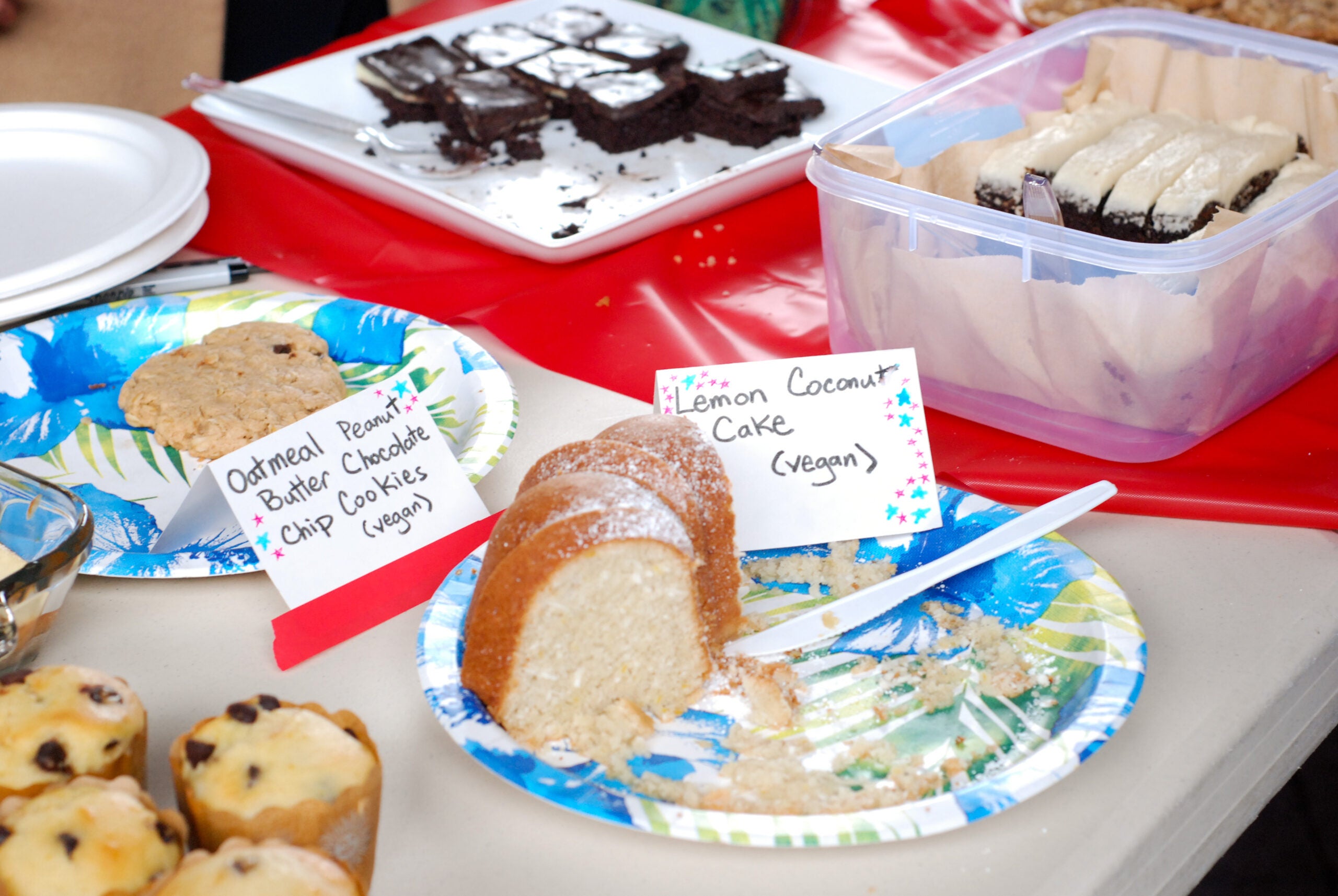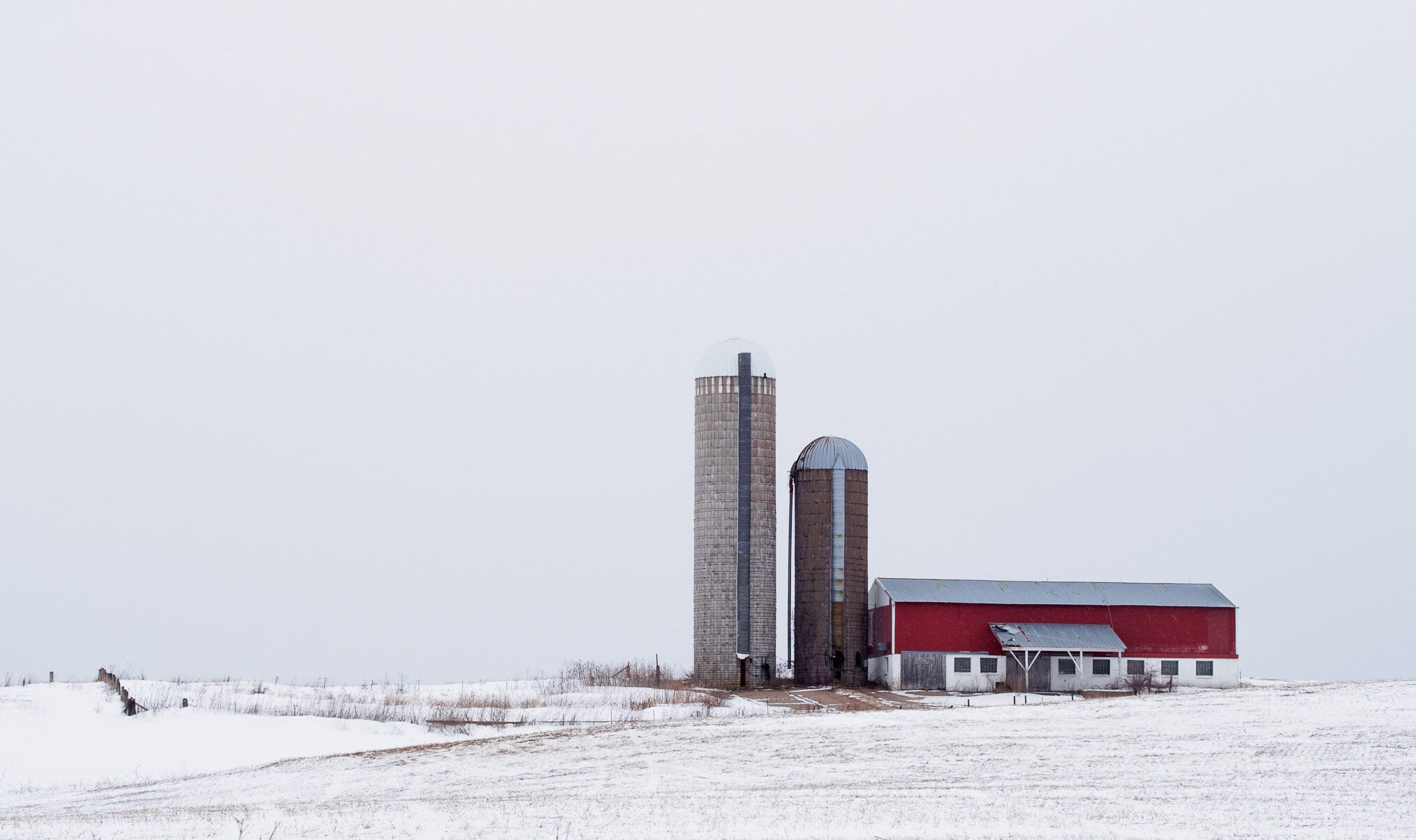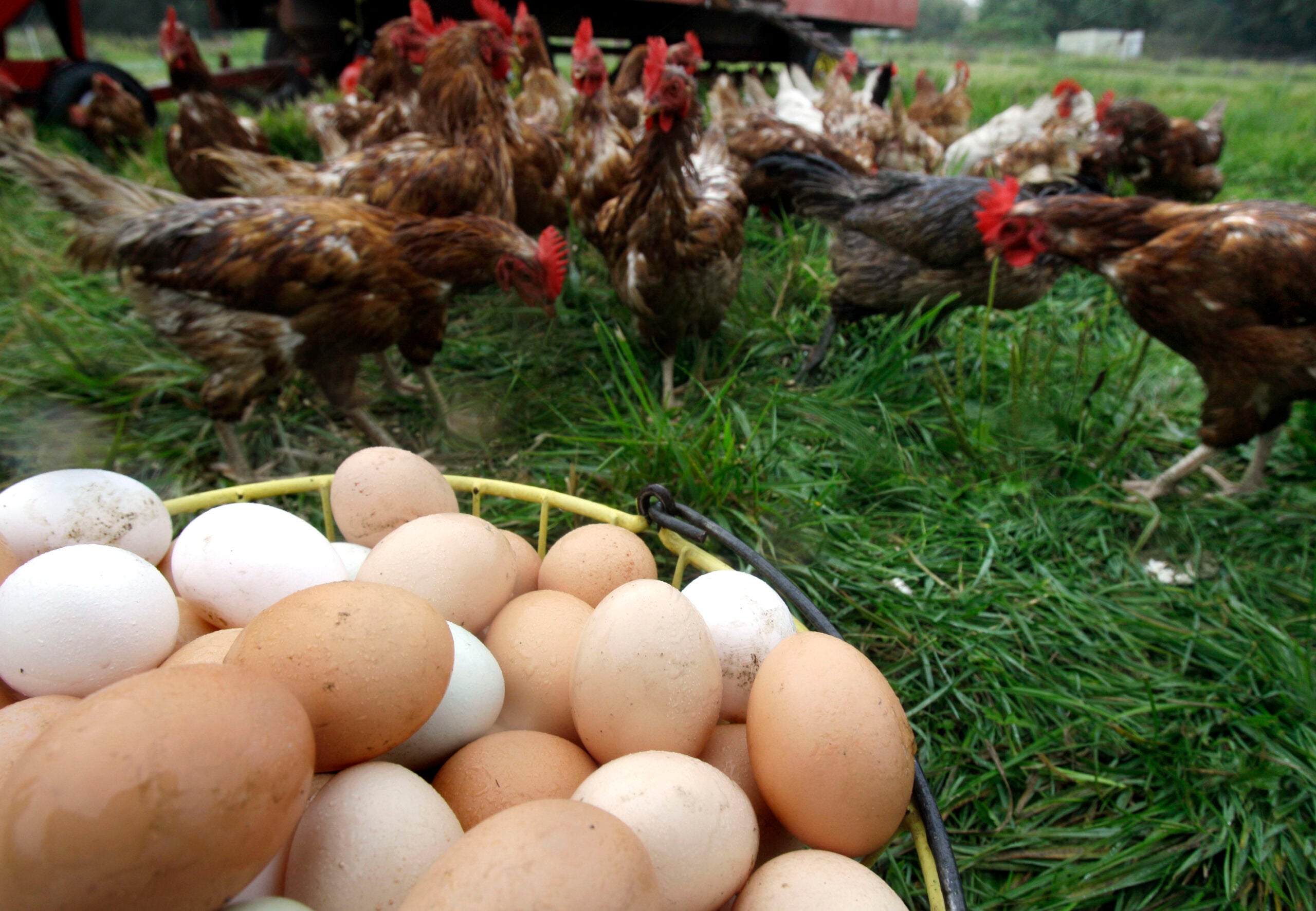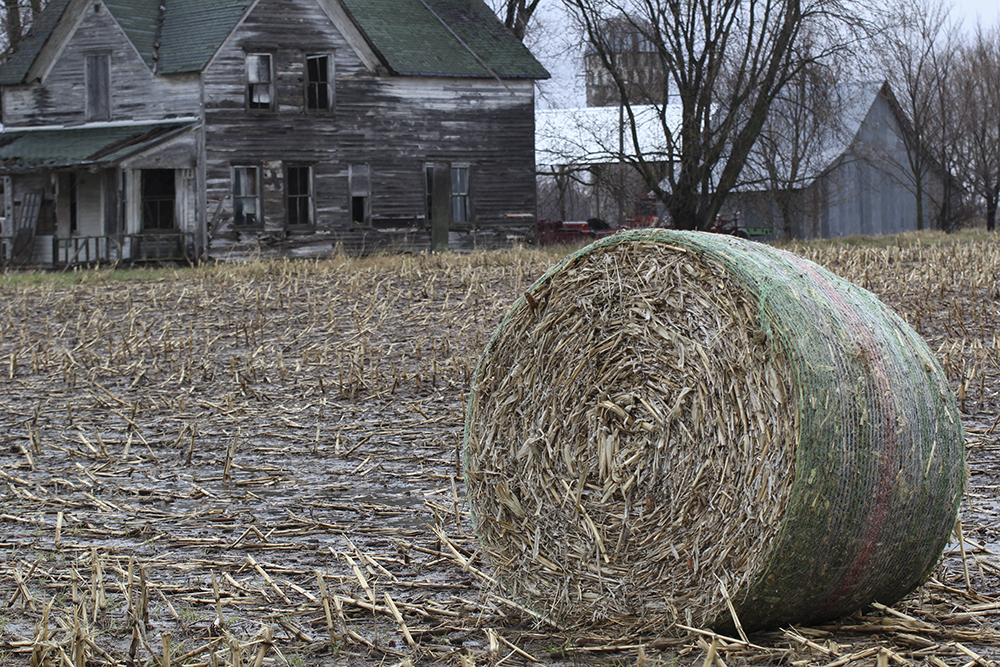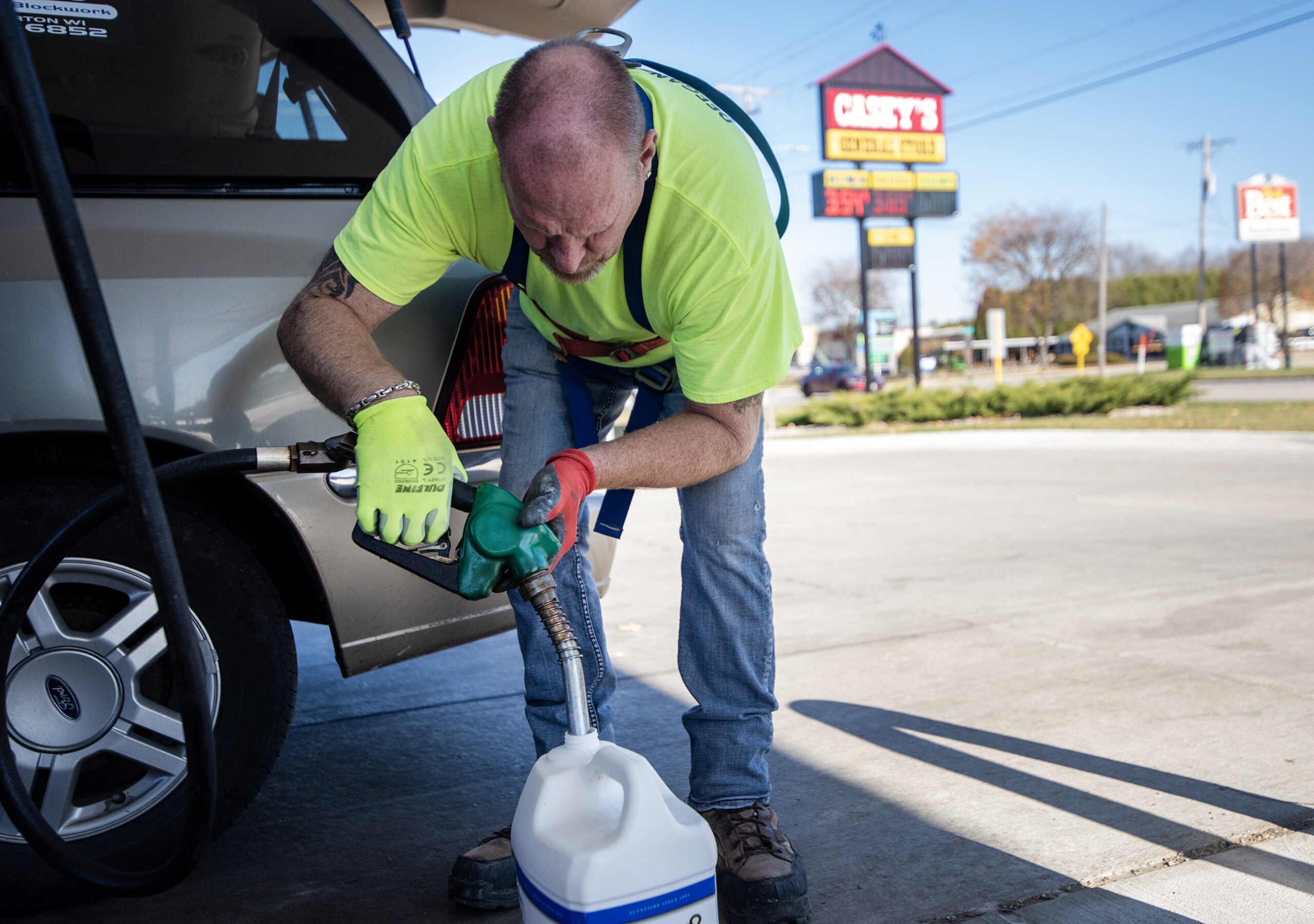Farmers markets are beginning to open all over the state this month, but one thing Wisconsinites won’t see at their local markets are bread, cookies or muffins made in home kitchens.
Wisconsin is one of two states that don’t permit cottage food operations, or businesses run out of home kitchens, to sell baked goods.
But that could be changing now that three farmers in southern Wisconsin are suing the state Department of Agriculture, Trade and Consumer Protection.
Stay informed on the latest news
Sign up for WPR’s email newsletter.
In a lawsuit filed in January, Dela Ends, Lisa Kivirist and Kriss Marion said the ban on baked goods is unconstitutional because the state already allows cottage food businesses to sell things like canned goods and maple syrup. They also point out that the state classifies items like bread, cookies, or muffins as “not potentially hazardous,” which they say negates the idea that home operations are a food safety hazard.
“(Baked goods) have a lower moisture content, so they are shelf stable,” said Kivirist. “They’re things that could be out on the table at a farmers market and be safe.”
While cottage food operations aren’t limited to country kitchens, Marion said rural communities are especially impacted by the missed opportunity for economic activity.
“A farmers market in little towns like mine inspires, kind of incubates little businesses,” Marion said. “People are baking at home, they bring their goods from home, they get to test their recipes without making a big investment.”
And that economic growth isn’t limited to the people starting their own business.
“The people who are baking in their homes, they’re going out in their community, they’re buying ingredients, they’re stimulating their local economy and it just goes around and helps lots of people,” Ends said.
With more people buying local and the rising popularity of farm-to-table businesses, Marion also said people are already OK with any risk that comes from buying items not made in a commercial kitchen.
“I think people actually assume that when they go to a market and buy something at a little stand from their neighbor that their neighbor has made that in their kitchen,” Marion said. “I don’t think it crosses people’s minds that their neighbors would have to rent a kitchen or build an expensive kitchen.”
But food industry advocates say the state can’t ensure food safety in home kitchens, which could negatively impact all bakeries.
“If a food crisis breaks out, it gives a black eye to the entire industry,” said Dave Schmidt, CEO of the Wisconsin Bakers Association.
For an example, Schmidt pointed to the presence of salmonella in one company’s peanut butter products back in 2009.
“Peanut butter sales and everything just plummeted for almost a year because of one plant. It didn’t affect all the peanut processing, but just one plant had a problem,” Schmidt said.
Schmidt said allowing people to bake out of their homes also impacts companies trying to open a more traditional bakery.
“All the small business bakery operations that are out there across the state, that are paying licensing and regulation fees and are required to do the things that they have to to get started in business, it really puts them at an unfair advantage,” Schmidt said.
But many states across the country have passed laws creating more freedom for cottage food operations in the last few years.
One example is Illinois, which passed the Illinois Cottage Food Operation Law back in 2012. Last year, the state decided to increase the amount of money home-based operations can make and even created a task force to approve more items for the cottage food industry.
Dale Hazelwood, vice president of the Illinois Farmers Market Association, said cottage food vendors have brought back the popularity of local businesses.
“Farmers markets are going back to what we used to where we have all these little mom and pop businesses, lots of specialty items that you can’t get anywhere else,” Hazelwood said.
Illinois doesn’t keep track of how many cottage food businesses are operating in the state, but Hazelwood said he’s definitely seen an increase in vendors at his local market.
And Hazelwood said he’s not worried about these cottage food operations impacting other local businesses.
“A typical brick-and-mortar business is open five to seven days a week with regular hours, where a farmers market is usually one day a week for a limited number of time,” Hazelwood said. “So, I’d be really curious how that one four-hour-a-week vendor is out-competing a brick-and-mortar (business).”
A court date hasn’t been set for the farmers’ lawsuit in Wisconsin, but Ends, Kivirist and Marion also said they hope the process will start a conversation among legislators and other stakeholders about how traditional bakeries and cottage food operations can coexist.
Wisconsin Public Radio, © Copyright 2025, Board of Regents of the University of Wisconsin System and Wisconsin Educational Communications Board.
